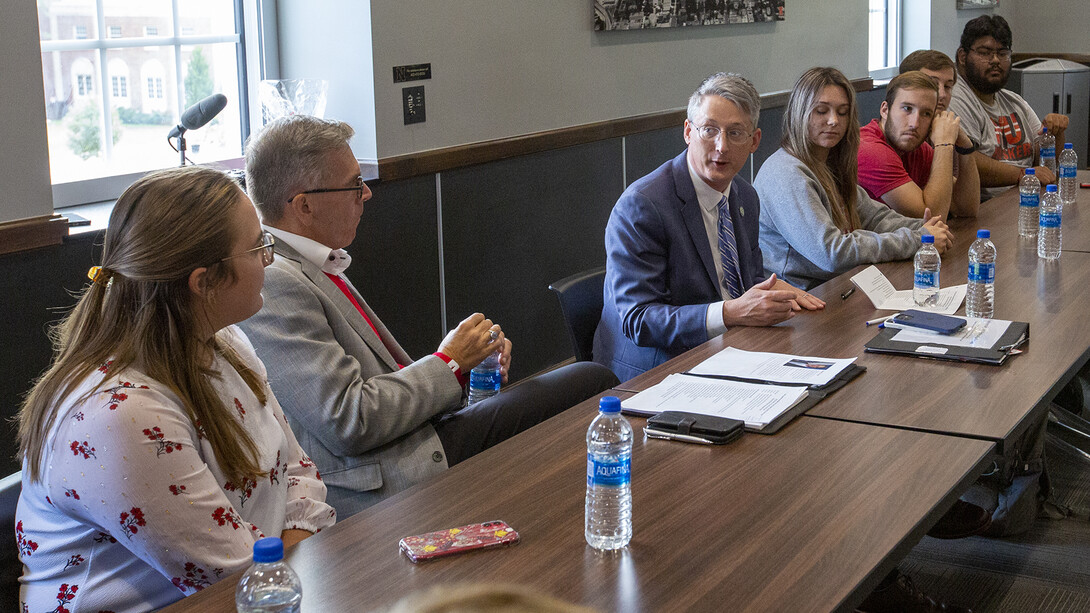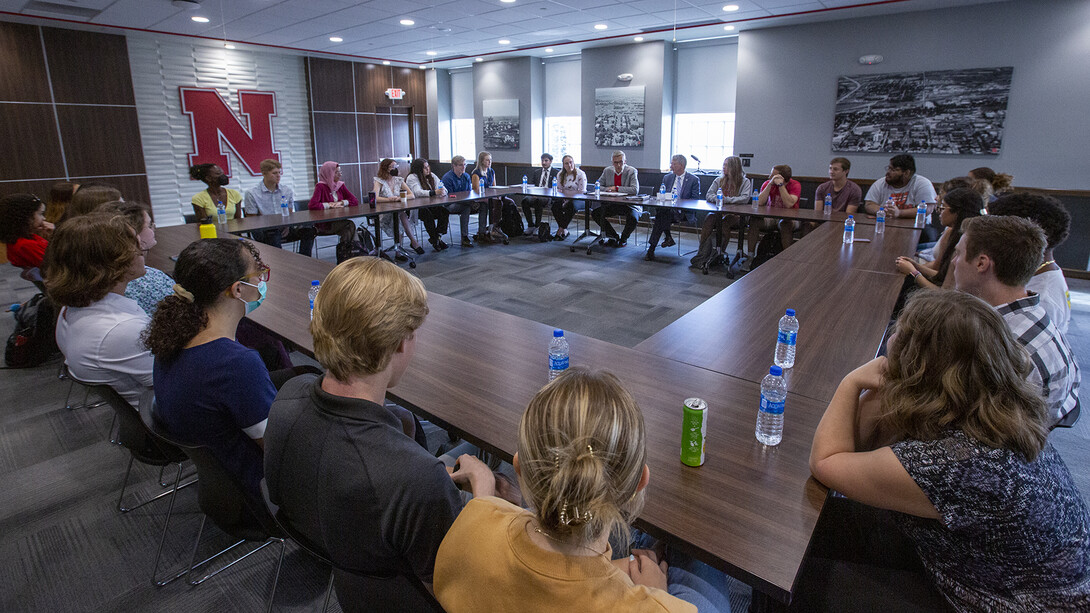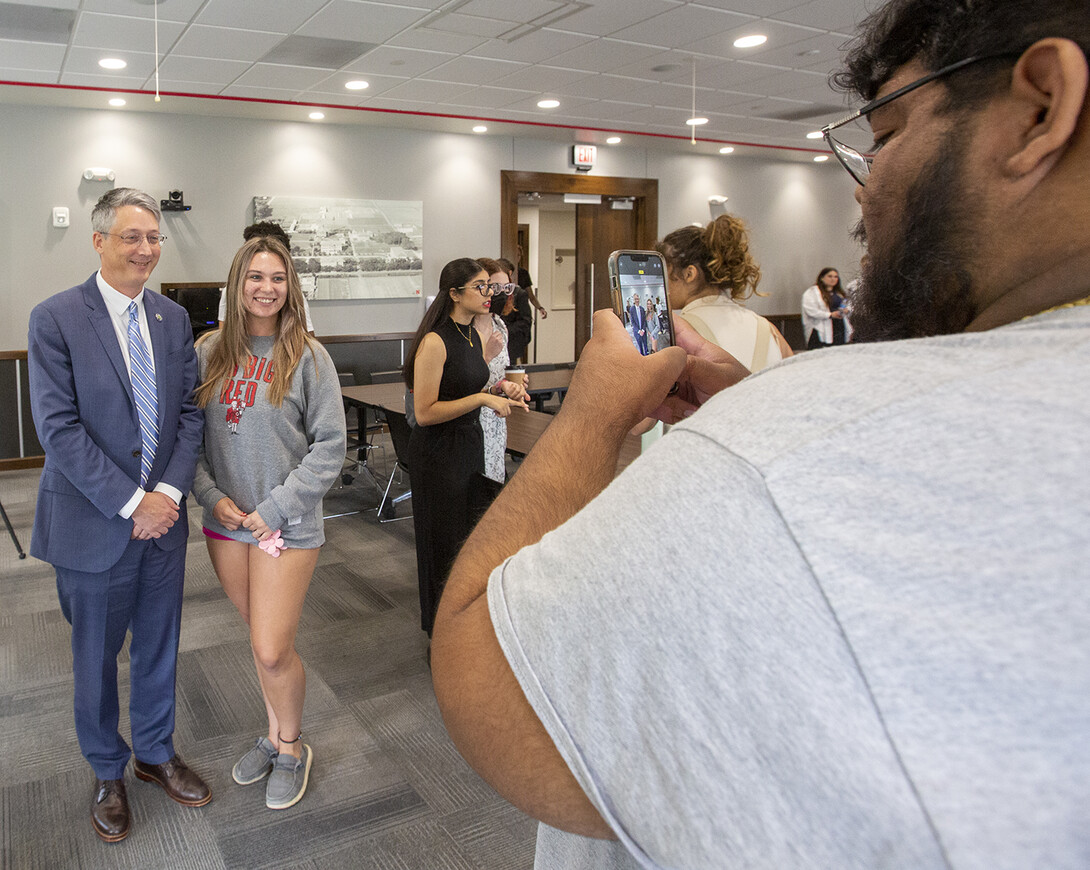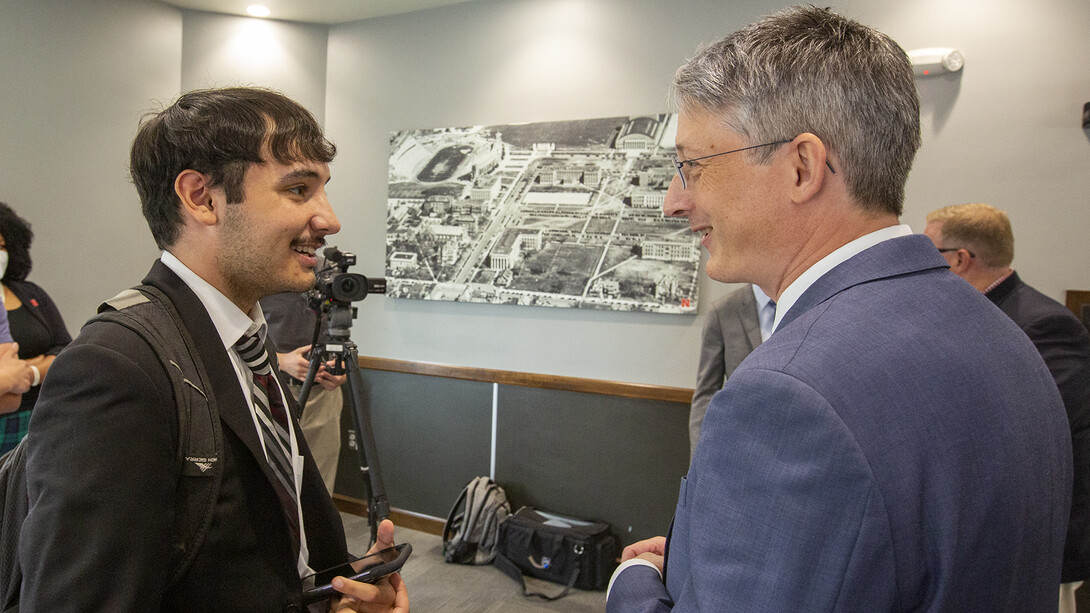
The reality of navigating higher education came into focus as nearly 30 University of Nebraska–Lincoln students participated in an open discussion with James Kvaal, the U.S. undersecretary of education, on Sept. 16.
Kvaal visited Nebraska to explore key issues in higher education and learn more about what the Cornhusker State is doing to expand student access/success and power economic growth. His stops included face-to-face discussions with students at UNL and the University of Nebraska at Omaha.
The student-focused discussions were an opportunity for Kvaal to learn more about student experiences in seeking and paying for a college degree, and exploring solutions to maintain low tuition rates.
“As we consider policy decisions related to higher education access and affordability, it’s really important that we take time and listen to the voices of the people we’re trying to help,” Kvaal said. “I know you are all very busy and it may be somewhat intimidating to talk about, but I would be grateful to learn a little bit more about your background, your stories, and what you are worried about — anything I can take back and share with the secretary (of education).”

After introducing themselves, the students talked openly about their struggles paying for college, navigating scholarships and student aid issues, worries about loan debt, programs that opened doors to higher education, and the need for instruction on finance-related topics.
When asked how many of the students worked a job while attending school, all 29 raised their hands. Digging further, Kvaal asked how many work more than 20 hours a week — nearly half raised a hand.
Through the discussion, the vast majority of students voiced their approval when it comes to the University of Nebraska–Lincoln’s affordability. And, numerous out-of-state students said it was a factor in them coming to Nebraska. Some admitted that paying out-of-state tuition in Nebraska was even less expensive than in-state back home.
The students also heralded the various programs that the university offers to make attending college more feasible — including Nebraska College Prep Academy, the Teacher Scholars Academy, Susan J. Buffett Scholarships, and Regents Scholarships.
“I’m here because of the Teacher Scholars Academy,” said Thursey Cook, a secondary education major from Ceresco. “I’m funding my own education and without the academy, I wouldn’t have been able to afford college.”

Many of the other students shared similar stories and worries. They included a variety of concerns and struggles ranging from a family living below the poverty line and struggling to get an acceptable ACT score, to navigating campus as a first-generation college student and seeking a degree as an immigrant youth protected by DACA.
Chancellor Ronnie Green said the entire NU system is committed to offering an affordable degree, while showing youth that college is attainable and offering students necessary supports as they take classes.
“As a land-grant university, it’s a bedrock upon which we were founded,” Green said. “And, we continue to live and breathe it every day.”
Kvaal, a Stanford University graduate with a law degree from Harvard, is a Massachusetts native. He grew up visiting grandparents in Omaha and attending Husker football games.
He was impressed with the students’ focus on affordability — something that has changed since his college days.
“When I was in college, I took out loans and sort of assumed it would all work out,” Kvaal said. “For young people today, I think there is a lot more awareness of the trade-offs.”
Kvaal was also impacted by multiple students talking about how they passed on educational opportunities due to the need to work to pay college-related bills.
“I don’t remember feeling quite so much pressure — that if I made a mistake or choice now, I may regret it,” Kvaal said. “I think that’s really different today.”
At the conclusion of the discussion, Kvaal told the students he appreciated their input and that it would be used to help shape future policy.
“This was an impressive group of young people,” Kvaal said. “I thought they were really perceptive, really shrewd, and it just leaves me feeling a lot better about the future after getting to know them a little bit.”








